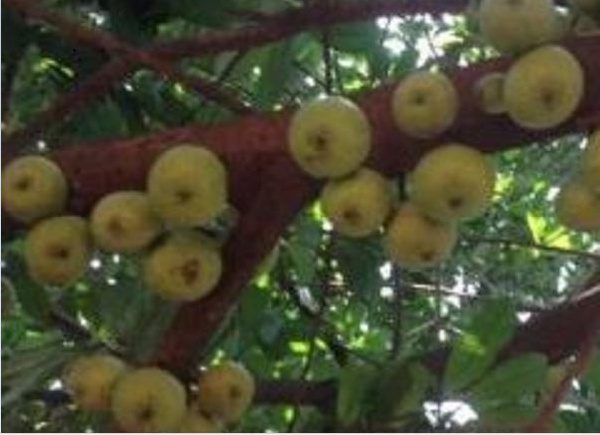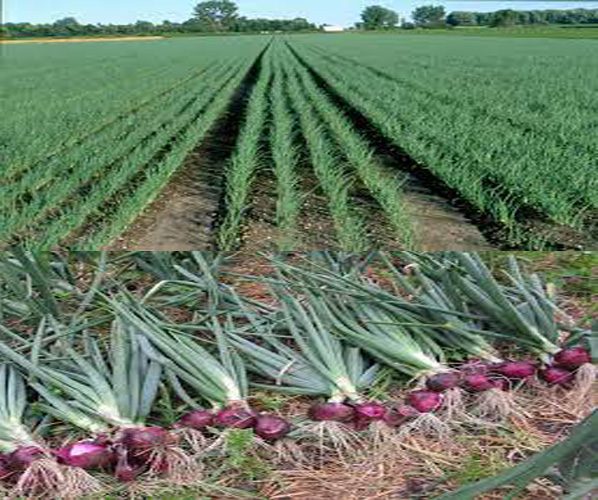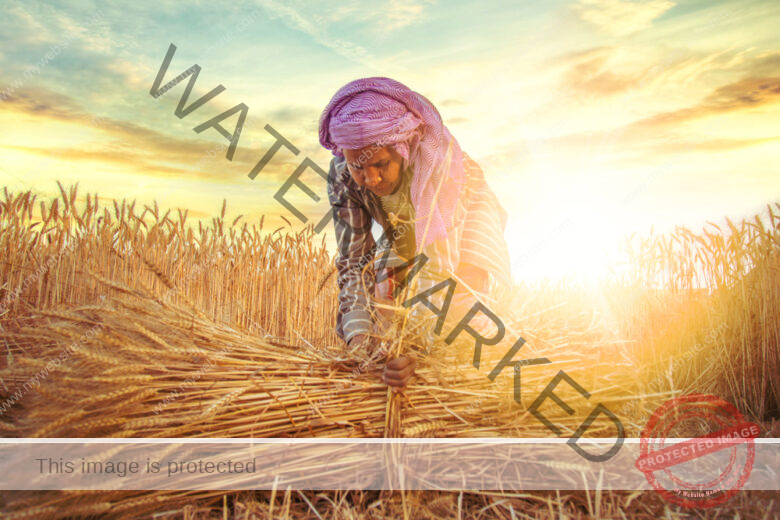Welcome to our guide on How To Grow Apple! Apples are one of the most popular fruits in Ghana just like in other part of the world, and it’s no wonder why. Not only are apples delicious, but they are also packed with essential vitamins and minerals. Growing your own apples can be a fun and rewarding experience.
The steps on how to grow apples land selection, seed varieties selection, land clearing, soil preparation, planting, watering, fertilizer application, pruning, pest and disease control. All of these will be discussed proper in this article.
With the right knowledge and preparation, you can enjoy a bountiful harvest of fresh apples each year. In this guide, we will cover the steps on how to grow apple in Ghana. So, let’s get growing!
How To Grow Apple in Ghana
Growing apples in Ghana can be a rewarding experience, whether you’re looking to grow a few trees in your backyard or you’re a professional orchardist. Here are some steps to help you get started:
Step 1. Select the Ideal Land Area
When selecting an ideal land area to grow apples, it is important to consider soil type, climate, and the availability of water. The required soil should be well-draining and as well rich in organic matter. Apples also prefer a mild climate, with temperatures ranging from 50-75°F, so an area with a temperate climate is ideal. Finally, regular watering is essential for apple trees, so access to a reliable water source is necessary.
Step 2. Select the right Apple Variety
Choose the type of apple tree for your climate. Different types of apple trees thrive in different climates, so be sure to research which type of tree will do best in your local area. Some of the apple varieties that can thrive in Ghana include Gala, Golden Delicious, Granny Smith, Honeycrisp, Red Delicious, Rome, Braeburn, and Elstar.
Step 3. Clean and Clear the Land
This process typically involves removing any existing structures, trees, shrubs, and other vegetation to prepare it for future development. Depending on the size and scope of the project, this may involve bulldozers, excavators, and other heavy construction equipment.
Also, any hazardous materials, such as asbestos and lead, may need to be removed. Once the land has been cleared and cleaned, the developer can begin the process of building the desired structures.
Step 4. Prepare the soil
Before planting, you should prepare the soil by tilling the soil, and adding organic matter such as compost or manure. After the soil is prepared, you should also add a layer of mulch to help retain moisture and reduce weeds.
Also, you will have to level the soil to create a flat surface, and make sure the soil is well-drained
Step 5. Plant Your Apple Seedling
Apple trees should be planted in an area that receives at least 6 hours of sunlight each day. Dig a hole that is approximately twice the depth and width of the root ball of the apple tree seedling. Place the seedling in the hole and spread out the roots. Backfill the hole with soil, tamping it down firmly. Water the newly planted seedling deeply.
Step 6. Water Your Apple Tree Regularly
Make sure to water your tree deeply and evenly, but avoid over-watering as this can lead to root rot.
Step 7. Fertilize Your Tree
Fertilize your apple tree with a balanced fertilizer every spring and fall.
Step 8 Prune Your Tree
Pruning is an important part of caring for an apple tree, as it helps promote healthy growth and minimizes disease. Use sharp pruning shears to remove any dead, damaged, or diseased branches.
Step 9. Protect Your Tree from Pests And Diseases
Monitor your tree for signs of pests and disease, and take steps to control any problems that arise.
Variety Of Such Apple In Ghana:
There are no native apple varieties in Ghana. However, some apple cultivars that can thrive in Ghana’s climate include Anna, Dorsett Golden, and Ein Shemer.
These cultivars have been adapted to the tropical climate and can grow well in areas with altitudes of 800 to 1,500 meters above sea level.
How Much Is Such Crop Sold In Ghana:
The price of apples in Ghana can vary depending on the season, location, and availability. Apples are often imported from other countries, which can result in higher prices. On average, apples can cost between GHS 5 and GHS 15 per kilogram in Ghana.
Best Agronomic Practices To Engage In Growing Apple In Ghana:
To grow apples successfully in Ghana, you need to follow the best agronomic practices, which include the following:
- Choose the right apple cultivar that is adapted to Ghana’s climate and soil conditions.
- Prepare the planting site by removing weeds and other debris, and incorporating organic matter into the soil.
- Plant apple trees in well-drained soils with good water-holding capacity.
- Water apple trees regularly, especially during the dry season.
- Apply appropriate fertilizers based on soil analysis results.
- Prune apple trees to encourage fruit production and remove dead or diseased wood.
Control pests and diseases using appropriate measures such as biological control, cultural control, and chemical control.
Projected Profit Of Apple In Ghana:
The profit potential of apple farming in Ghana can vary depending on several factors such as the apple cultivar, production costs, yield, and market prices.
However, with proper management practices and favorable market conditions, it is possible to achieve a profitable apple farming business in Ghana.
Common Diseases And Pests Of Apple:
Apple trees in Ghana can be affected by several pests and diseases, including:
- Apple scab: This is a fungal disease that can cause brownish-black lesions on the leaves, fruits, and stems of apple trees. To control apple scab, you can apply fungicides, maintain good air circulation around the trees, and remove infected leaves and fruits.
- Codling moth: This is an insect pest that can cause damage to apple fruits by burrowing into them. To control codling moth, you can use pheromone traps, apply insecticides, and practice good sanitation by removing fallen fruits from the orchard.
- Apple maggot: This is another insect pest that can cause damage to apple fruits by tunneling through them. To control apple maggot, you can use sticky traps, apply insecticides, and practice good sanitation by removing fallen fruits from the orchard.
Different Propagation Methods Of Apple:
Apple trees can be propagated using several methods, including:
- Seed propagation: This involves planting apple seeds and growing them into seedlings, which can be used as rootstocks for grafting.
- Grafting: This involves joining a scion (a piece of desired apple variety) with a rootstock (a piece of a different apple variety) to create a new tree with desired characteristics.
- Cutting propagation: This involves taking cuttings from an apple tree and rooting them to create new trees that are genetically identical to the parent tree.
- Tissue culture propagation: This involves using specialized laboratory techniques to grow apple trees from small pieces of tissue taken from a parent tree. This method is commonly used to propagate disease-free and high-yielding apple trees.
Apple Seedlings For Sale In Ghana
Apple seedlings for sale in Ghana are available from a number of nurseries and tree farms. The seedlings come in a variety of varieties, from small starter trees to full-size fruit trees. Apple seedlings are ideal for home gardeners who want to grow their own apples.
How To Plant Apple
Step 1. Choose a sunny location with well-drained soil.
Step 2. Dig a hole that is twice as wide and just as deep as the root ball of the apple tree.
Step 3. Place the tree in the hole and fill in with soil, tamping down gently around the tree.
Step 4. Water the tree thoroughly and mulch around the base of the tree to keep the soil moist.
Step 5. Prune the tree to allow for good air circulation and a strong, sturdy shape.
Step 6. Fertilize the tree twice a year with a balanced fertilizer.
Step 7. Monitor for pests and diseases and treat appropriately.
Step 8. Harvest apples when they are ripe.
Can Strawberry Grow In Ghana
Yes, strawberry can grow in Ghana. Strawberries do well in Ghana’s warm climate and thrive in well-drained, sandy soil. They require at least 6 hours of direct sunlight per day and regular watering to produce sweet, juicy fruits.
Apple Tree
The apple tree (Malus domestica) is a deciduous tree in the rose family best known for its sweet, pomaceous fruit, the apple. Apple tree is universally cultivated preferably as a fruit tree.
The tree originated in Central Asia, where its wild ancestor, Malus sieversii, is still found today.
Can Grapes Grow In Ghana
Yes, grapes can grow in Ghana. Grapes are grown mainly in the western and central parts of the country, and the climate is ideal for grape cultivation. The soils are generally clay and loam, and the rainfall is adequate.
Fig Tree
Fig trees are a type of tree that produce a sweet, edible fruit called a fig. They are native to many parts of the world and can be found in tropical, subtropical and temperate climates. Fig trees can grow up to 30 feet tall and have large, leathery leaves. The fruit is high in fiber and vitamins, and can be eaten fresh, dried, or used in recipes.
How To Plant Apple
Step 1: Select a suitable location: Choose an area that receives at least 6-8 hours of sunlight per day and has well-drained soil.
Step 2: Dig the hole: Dig the hole twice as wide as the root ball and just as deep.
Step 3: Prepare the soil: Add a few shovelfuls of compost or aged manure to the soil.
Step 4: Place the tree in the hole: Place the tree in the hole and spread out the roots.
Step 5: Backfill the hole: Refill the hole with soil and tamp it down gently.
Step 6: Water the tree: Water the tree thoroughly after planting.
Step 7: Prune the tree: Prune the tree to encourage healthy growth.
Step 9: Mulch the area: Mulch the area around the tree to help retain moisture.
Why Can’t Apple Grow In Ghana
Apple cannot grow in Ghana because the climate and soil are not suitable for the types of apples typically grown in the United States. Ghana’s climate is tropical and the soil does not provide the necessary nutrients for apple trees to thrive.
Another reason been that Ghana does not have the necessary infrastructure for large-scale apple production, including cold storage facilities and the necessary equipment for harvesting and packing the fruit.
Can You Grow Apple In Africa
Yes, you can grow apples in Africa. Apples can be grown in many different African countries including South Africa, Ethiopia, Kenya, Zimbabwe, Morocco, and Tunisia.
However, the climates in these countries may not be ideal for growing certain types of apples. Apples require a cool climate to thrive, so varieties such as Golden Delicious, Granny Smith, or Fuji might be better suited to these regions.
Apple Seedlings For Sale In Ghana
Yes, apple seedlings are available for sale in Ghana. Local nurseries and agricultural supply stores offer a variety of apple seedlings for sale. You can also purchase apple rootstock and scionwood online from international suppliers. Be sure to research the varieties of apples that will be suitable for Ghana’s climate and soil conditions.
Can Grapes Grow In Ghana
Yes, grapes can be grown in Ghana. Grapes are grown in many parts of the country, with the most common type being the Thompson Seedless variety. The climate in Ghana is hot and humid, making it ideal for growing grapes.
The most suitable areas for grape production are the southern parts of the country, where the soils are well-drained and the temperatures are mild. With the right soil and climate conditions, grape vineyards can be very successful in Ghana.
Conclusion
Growing apples in Ghana is definitely possible, but it will require some investments and hard work. It is important to choose a suitable variety of apples that is resistant to pests and diseases, as well as to the climate in Ghana. Furthermore, the orchard must be properly managed to ensure successful fruit production. Also, it is important to select the right location and to use the right irrigation and fertilization techniques to ensure the success of apple production in Ghana.





Please am in Ghana and need your help to grow apples.
I will be very grateful for your help.
my number is +233240578765 on Whatsapp and Telegram.
hoping to here from you soon.
thank you.